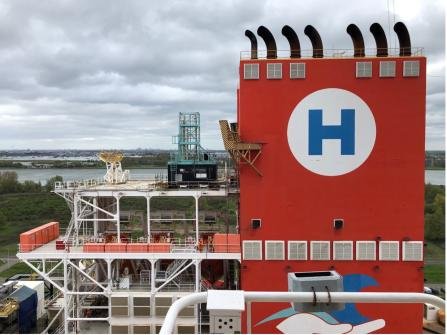The Future of Onboard Carbon Capture in the Maritime Industry
Onboard carbon capture (OCC) is a promising technology that has the potential to revolutionize the maritime industry’s journey towards decarbonization. The EverLoNG consortium recently concluded a successful project that demonstrated the feasibility of OCC on LNG-fueled ships, paving the way for its widespread adoption.
Project Overview
The EverLoNG project, led by TNO and supported by an EU climate action fund, aimed to showcase the viability of OCC on two LNG-fueled ships owned by TotalEnergies and Heerema Marine Contractors. Through two successful demonstration campaigns and the development of key tools and assessments, the project partners identified significant milestones and technical solutions to implement OCC effectively.
Key Findings
Among the key findings of the EverLoNG project were the successful capture, liquefaction, and storage of CO2 onboard the participating vessels, as well as the development of a Port Readiness Tool for CO2 and a roadmap for OCC implementation in Europe. Life Cycle Assessment results also indicated the potential for OCC to significantly reduce CO2 emissions compared to traditional benchmarks.
The project also highlighted that there are no significant regulatory or class rule barriers preventing the immediate implementation of OCC in the maritime industry, signaling a clear path forward for adoption.
Industry Recommendations
Several industry reports, including those by DNV and the Global Centre for Maritime Decarbonisation, have identified OCC as a practical solution for decarbonizing shipping. The Maritime Technologies Forum (MTF) recently offered key recommendations for the safe adoption of OCC, emphasizing regulatory compliance, safety considerations, and the development of a robust carbon value chain.
Future Prospects
The industry’s interest in OCC was further underscored by the LNGameChanger project, a collaborative effort between HAV Group, Havila Voyages, Molgas, and SINTEF. This project aims to develop a novel solution for capturing and storing CO2 from LNG-fueled power trains, with a focus on meeting future emission limits and addressing infrastructure needs for decentralized CO2 collection and transport in ports.
As the maritime industry continues its transition towards sustainable practices, onboard carbon capture emerges as a promising technology that holds the key to reducing emissions and achieving climate goals. With successful demonstrations, regulatory readiness, and industry collaboration, OCC is poised to play a significant role in shaping the future of maritime decarbonization.

